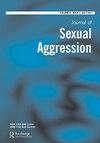Professional responses to sibling sexual abuse
IF 1.5
4区 社会学
Q2 CRIMINOLOGY & PENOLOGY
引用次数: 1
Abstract
ABSTRACT Professional confidence and knowledge are essential in effectively responding to sibling sexual abuse (SSA). If professionals do not have knowledge of the area and confidence in their skills to deliver effective support, then there could be negative consequences for the victims. The methods consisted of narrative interviewing of N = 30 professionals and N = 2 young victims/survivors. This approach was chosen as it provided a thorough and robust picture of practitioner responses to SSA. Through thematic analysis, three dominant themes emerged across both the young person and practitioner data in relation to practitioner responses to SSA, these being minimisation, exaggeration, and catastrophising. SSA is an area in its own right with its own nuances and considerations that make it distinct from other forms of sexual abuse, which means that professional responses and training need to be re-examined to develop new, more appropriate ways of working with victims as well as those who commit SSA. PRACTICE IMPACT STATEMENT The impact of this paper is both clinical and professional. It gives insight into a little-researched area and highlights the complex issues in relation to sibling sexual abuse and how this is framed and approached by professionals. This points to the critical need for more work and training in this area when working with SSA and the need for more bespoke professional knowledge.对兄弟姐妹性虐待的专业回应
专业信心和知识对于有效应对兄弟姐妹性虐待(SSA)至关重要。如果专业人员不了解该领域,也不相信他们提供有效支持的技能,那么可能会对受害者产生负面影响。方法包括N的叙述性访谈 = 30名专业人员和N = 2名年轻受害者/幸存者。之所以选择这种方法,是因为它提供了从业者对SSA反应的全面而有力的画面。通过主题分析,在年轻人和从业者的数据中,出现了三个与从业者对SSA的反应有关的主要主题,即最小化、夸大和灾难性。SSA本身就是一个领域,有其细微差别和考虑因素,使其与其他形式的性虐待不同,这意味着需要重新审查专业应对措施和培训,以开发新的、更合适的方式与受害者以及实施SSA的人合作。实践影响声明本文的影响既是临床的,也是专业的。它深入了解了一个研究较少的领域,并强调了与兄弟姐妹性虐待有关的复杂问题,以及专业人士是如何制定和处理这一问题的。这表明,在与SSA合作时,迫切需要在这一领域进行更多的工作和培训,并需要更多定制的专业知识。
本文章由计算机程序翻译,如有差异,请以英文原文为准。
求助全文
约1分钟内获得全文
求助全文

 求助内容:
求助内容: 应助结果提醒方式:
应助结果提醒方式:


